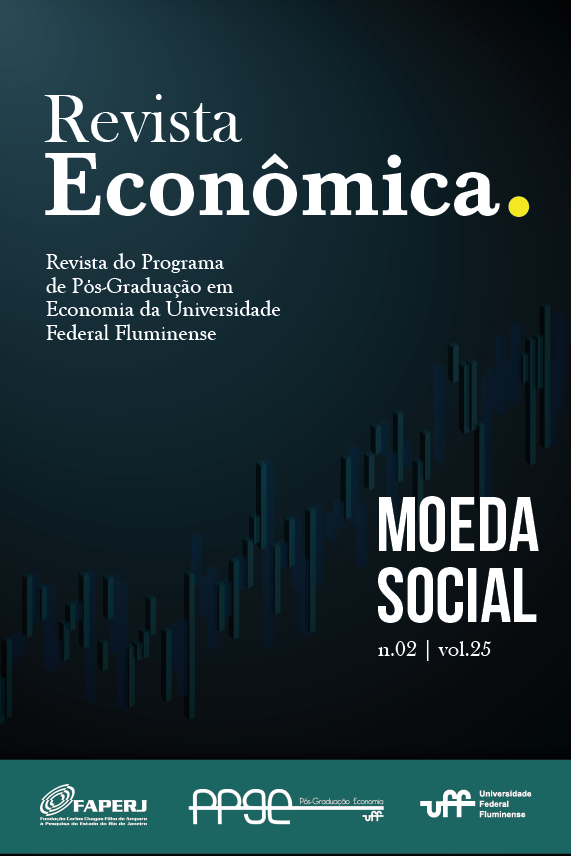Efeitos de programas municipais com moeda social sobre o mercado formal de trabalho antes e após a pandemia de COVID-19: um estudo de caso da moeda mumbuca no Município de Maricá - RJ
DOI:
https://doi.org/10.22409/reuff.v25i2.62630Resumo
Este estudo buscou verificar efeitos de programas sociais atrelados à moeda social Mumbuca, entre 2018 e 2022, sobre o mercado de trabalho formal do município de Maricá/ RJ. As análises foram realizadas em duas etapas: i) a partir de tabulações descritivas do fluxo mensal de vínculos formais de emprego, com vistas a comparar o desempenho de Maricá com o restante do estado; ii) com o método de controle sintético, para identificar o que teria ocorrido caso os programas em moeda social não tivessem sido adotados e expandidos como forma de contenção dos efeitos perversos da pandemia de covid-19. Os resultados demonstram que Maricá apresentou um desempenho bem superior ao restante do estado tanto antes quanto após o início da pandemia, o que dá indícios de que os programas sociais reformulados a partir de 2018 mantiveram seu impacto positivo sobre o mercado de trabalho municipal. Contudo, não foi possível afirmar que sua expansão desde o início da pandemia tenha gerado efeitos adicionais nessa dinâmica laboral no município, o que não implica dizer que os efeitos não sejam positivos para seus beneficiários em outras esferas de análise.
Downloads
Downloads
Publicado
Edição
Seção
Licença
Autores que publicam nesta revista concordam com os seguintes termos:
a.Autores mantém os direitos autorais e concedem à revista o direito de primeira publicação, com o trabalho simultaneamente licenciado sob a Licença Creative Commons Attribution que permite o compartilhamento do trabalho com reconhecimento da autoria e publicação inicial nesta revista.
b.Autores têm autorização para assumir contratos adicionais separadamente, para distribuição não-exclusiva da versão do trabalho publicada nesta revista (ex.: publicar em repositório institucional ou como capítulo de livro), com reconhecimento de autoria e publicação inicial nesta revista.
c.Autores têm permissão e são estimulados a publicar e distribuir seu trabalho online (ex.: em repositórios institucionais ou na sua página pessoal) a qualquer ponto antes ou durante o processo editorial, já que isso pode gerar alterações produtivas, bem como aumentar o impacto e a citação do trabalho publicado (Veja O Efeito do Acesso Livre).

